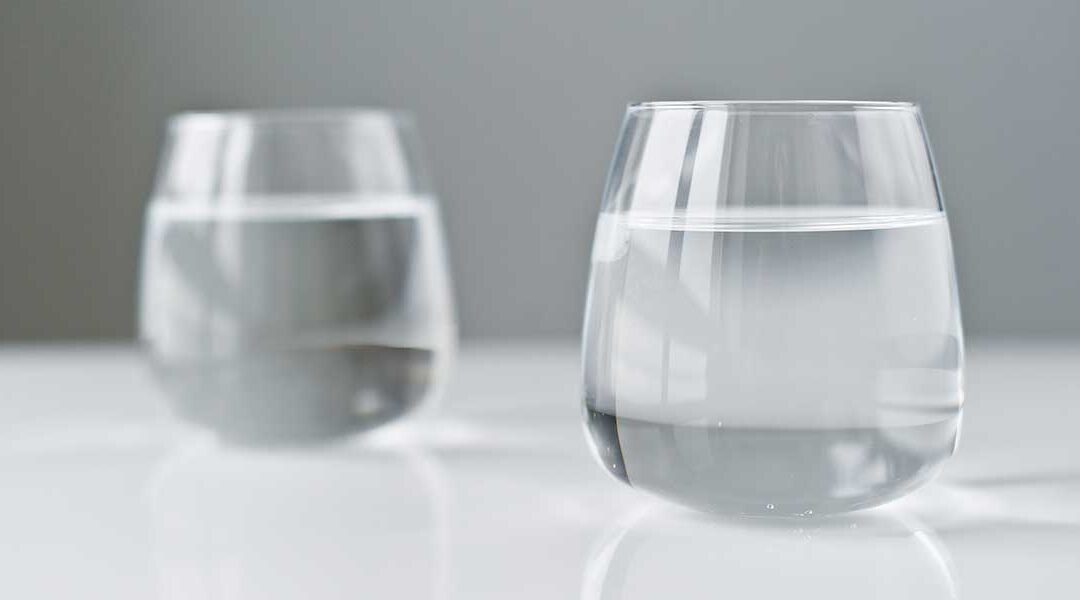If you’ve ever noticed soap that won’t lather, white spots on your dishes, or dry, itchy skin after a shower, you’ve likely got some water quality issues. More specifically, it could be hard water causing those problems. But what exactly does that mean?
Mid-MO Water Solutions is your local water service company, and we’d like to take a closer look at the difference between hard water and soft water, as well as how it affects everything from your plumbing to your personal comfort.
What’s the Real Difference Between Hard and Soft Water?
The primary difference between hard water and soft water lies in one key factor: mineral content.
Hard water contains elevated levels of magnesium and calcium, which it picks up as it passes through mineral-rich rock, such as limestone. In contrast, soft water has low concentrations of these minerals, either naturally or as a result of treatment processes to remove them.
Water experts use the term “water hardness” to measure how “hard” your water is.
Here are the standard classifications:
- Soft water: 0 to 60 milligrams per liter (mg/L)
- Moderately hard water: 61 to 120 mg/L
- Hard water: 121 to 180 mg/L
- Very hard water: 180+ mg/L
If you’re in mid-Missouri, there’s a good chance your water falls into the “hard” or “very hard” category, especially if you use well water.
How Does Water Hardness Affect Cleaning Efficiency?
When hard water combines with soap, it forms an insoluble film, commonly referred to as soap scum. This scum reduces cleaning efficiency, requiring more soap or detergent to achieve the same level of effectiveness. You may also notice soapy residue left on your dishes, clothing, skin, and hair, even after rinsing thoroughly.
On the other hand, soft water dissolves soap more completely, allowing for a lather that rinses cleanly. That means more effective showers, cleaner dishes, and less money spent on soaps and detergents over time.
Where Does Scale Buildup Come From?
If you’ve seen a white, chalky residue on your showerhead or faucet, that’s scale buildup in action. This issue occurs when the calcium and magnesium in hard water precipitate out of the water when heated.
Over time, scale buildup can:
- Clog plumbing and reduce water flow and affect system pressure
- Shorten the lifespan of appliances like dishwashers and water heaters
- Increase energy bills by reducing heating efficiency
Soft water prevents scale from forming in the first place. That extends the life of your appliances and reduces maintenance costs.
What’s the Impact of Hard vs. Soft Water on Skin and Hair?
The difference between hard water and soft water has a direct effect on your hygiene and health. Mineral deposits from hard water can strip natural oils from your skin and hair, leading to:
- Dry, itchy, or flaky skin
- Dull, brittle hair that’s harder to manage
- Residual soap scum that clogs pores and causes skin irritation
Soft water helps rinse away soap and shampoo more thoroughly, leaving your skin feeling smoother and your hair softer and shinier. While some people find the “slippery” feel of soft water unusual at first, most quickly come to prefer its superior cleansing abilities.
Do You Need a Water Treatment System?
If you’re noticing any of the problems above, purchasing a water softener system may be your best solution. Work with a trusted local water solutions company to choose the right system based on your water quality, household needs, and budget.
Here are some of the available water treatment systems:
Ion-Exchange Water Softeners
These replace calcium and magnesium with sodium or potassium. While they eliminate scale buildup and improve soap efficiency, they require salt refills and routine maintenance.
Salt-Free Conditioners
These products utilize a crystallization process to prevent scale without adding sodium and are ideal for environmentally conscious households or those following a low-sodium diet.
Reverse Osmosis Systems
These provide purified water at specific taps, improving taste and reducing a wide range of contaminants. However, they don’t soften water throughout your plumbing system.
Showerhead Filters
This quick solution addresses the impact of hard water on skin and hair in the bathroom.
Let Mid-Mo Water Solutions Help You Make the Right Choice
At Mid-Mo Water Solutions, we’ve helped many local property owners tackle water issues with customized, high-quality water softener systems that last. If you’re concerned about how the difference between hard water and soft water is affecting your property, we’re here to help.
Call Mid-M0 Water Solutions at (573) 636-3800 today to schedule a water test and get expert recommendations tailored to your home.

